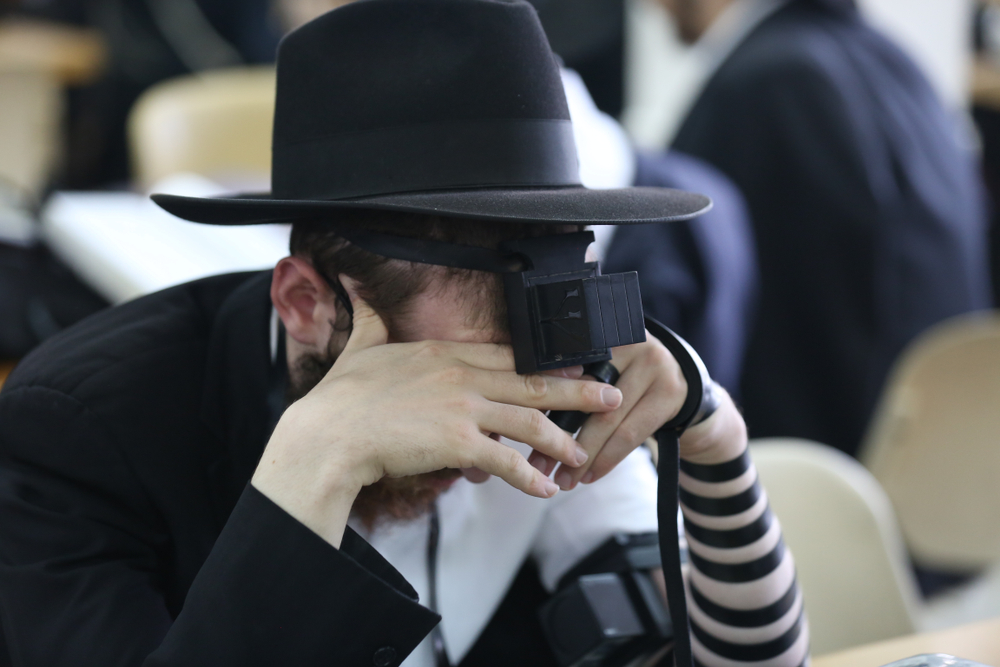Faith
Why God Cares About the Details: The Purpose of Mitzvot in Judaism
How every commandment refines the soul, aligns us with divine will, and shapes our eternal connection to God
 (Photo: shutterstock)
(Photo: shutterstock)Yaron asks: “Hello. I have a non-religious friend who asked me about the purpose of the mitzvot. Judaism teaches us to avoid sins and fulfill God’s commandments so that we will receive reward or punishment accordingly. My friend wants to know why the Master of the Universe, who exists beyond time and matter, cares if I tore a piece of toilet paper on Shabbat or tied tefillin made of leather? I believe it is God’s will, but I’d like to know how to explain it rationally.”
* * *
Thank you for your question. You can answer your friend in the two following ways:
By explaining the laws of creation (God’s will).
By exploring the unique connection between the soul and its Creator (human perspective).
We will focus on the first approach of God’s will as expressed in creation.
If the Creator had no will, there would be no creation, no world, and no living beings. Every moment of life is proof of an active divine will. Without it, there would be absolute nothingness. God’s will is to do good, just as the sun’s “will” is to shine.
If creation had no purpose, God would not have “bothered” to create such a complex physical world filled with human beings capable of thought and choice, possessing lofty souls and the ability to choose between good and evil. As the prophet Isaiah says: “For thus says the Lord, Creator of the heavens… the One who established the earth… He did not create it to be empty; He formed it to be inhabited” (Isaiah 45:18). Design itself is evidence of purpose and will.
God is infinite, so His will extends everywhere
The fact that God exists beyond matter and time does not distance Him from us. On the contrary, precisely because He is infinite and eternal, He is present everywhere. His will reaches even the smallest creations without limit or distinction.
A finite being distinguishes between large and small, while an infinite Creator does not. His will governs the movement of a single atom no less than the orbit of an immense galaxy — how much more so the actions of a human being, capable of conscious thought, speech, and action directed toward Him.
 (Photo: shutterstock)
(Photo: shutterstock)A scientific analogy
The law of gravity operates throughout the universe — it holds galaxies and massive stars in place, and also works on the tiniest ant on Earth. Similarly, God’s will applies to every being, regardless of scale.
Human beings are more significant than any star, not because of physical size, but because they possess awareness and a spiritual soul capable of recognizing their Creator and aligning with His supreme will.
The Torah is the Creator’s “instruction manual” for the only creature in the universe given free will to choose between good and evil.
Mitzvot are like the laws of nature
If your friend struggles with the concept of divine laws, remind him that “instructions” exist in the natural world as well:
A person who overeats without exercising will damage their health.
A person who puts their hand into fire will get burned.
A person who doesn’t build a railing on a roof is at risk of falling.
Does biology “care” if you’re healthy? Does gravity “care” whether you build a railing? They do not, but ignoring these principles leads to natural consequences.
Similarly, the Torah’s commandments are the “moral laws of nature” built into creation. Reward and punishment flow naturally from our actions, measure for measure. Just as there are physical laws, there are spiritual and ethical laws.
The Talmudic Sages said: “One who performs a mitzvah creates an advocate for himself; one who commits a sin creates an accuser” (Pirkei Avot 4:11).
The suffering of this world and the next is not revenge, but a form of healing, like a medical procedure to repair damage caused to the soul. Hell, in this sense, is like a washing machine, as it cleanses the spiritual stains left by sin. The wise person avoids getting dirty in the first place.
Even the smallest actions matter
God gave humans a unique intellectual capacity which makes them the crown of creation: “Fill the earth and subdue it, and rule over the fish of the sea, the birds of the sky, and every living thing” (Genesis 1:28).
Being created “in the image of God” means having the ability to know our Creator. Your very consciousness is proof that your soul is connected at all times to the supreme awareness of reality — God.
Paper, leather, and even your physical body are just material shells. What matters is your soul. Every conscious act matters, because the soul can choose between good and evil, and through that choice, connect to its Creator.
Tearing paper on Shabbat, for example, is not about the paper, but about aligning your awareness with God’s will. Shabbat connects us to the truth of creation and God’s cessation from work. By refraining from even a “small” creative act, you join your consciousness to His.
 (Photo: shutterstock)
(Photo: shutterstock)Why details matter
To a surgeon, washing hands thoroughly matters, because a microscopic virus can kill.
To a programmer, a single incorrect character in code can crash an entire program.
To a nuclear engineer, pressing the wrong button can be catastrophic.
If human systems demand precision, how much more so in the spiritual order that governs reality. The mitzvot are precisely designed by the Creator to refine the soul. As the sages taught: “What does God care if one slaughters from the throat or from the back of the neck? The mitzvot were given only to refine the creatures” (Midrash Tanchuma, Shemini 7).
Every mitzvah carries both a practical benefit and a spiritual repair. Circumcision benefits the body medically, marks the Jewish people physically, and sanctifies the soul. Tefillin, placed on the arm opposite the heart and on the head opposite the mind, focus a person’s emotions and thoughts on God, tying his will to his Creator.
Every commandment, whether ethical, ritual, or symbolic, shapes our awareness and draws us closer to the Divine. Every sin, by contrast, dulls spiritual sensitivity.
The purpose: Closeness to God
God gave the mitzvot “to refine His creatures,” like a jeweler polishes a diamond until it shines. We have free will so that our closeness to Him will be earned, not given as unearned “bread of shame.”
The ultimate reward is eternal closeness to God in the World to Come — a reward that can only be gained through our actions here in this world.
As the Talmudic Sages taught: “When a person departs from this world, neither silver nor gold nor precious stones accompany him, but only Torah and good deeds” (Avot 6:9).

